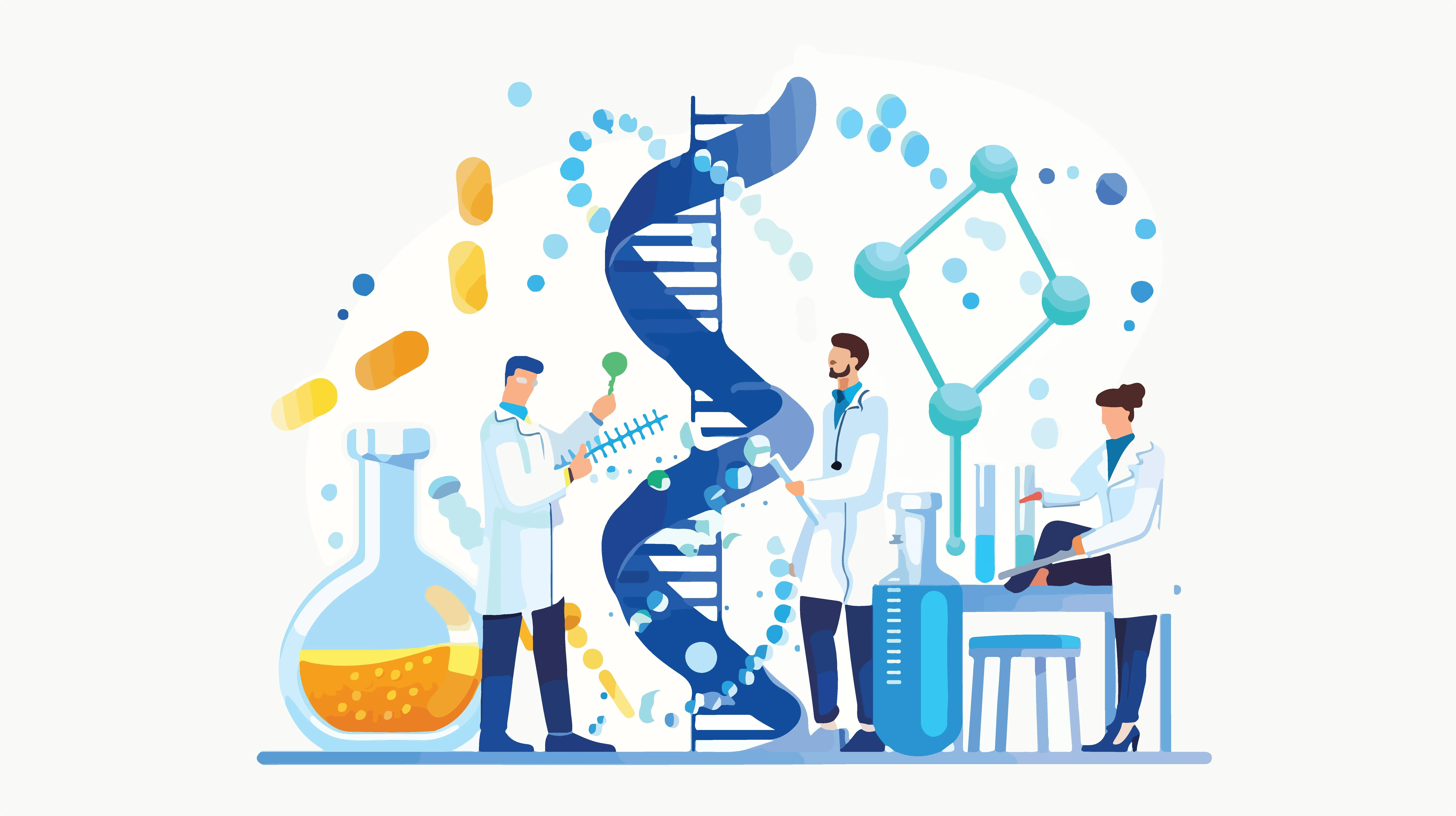The landscape of oncology drug discovery has undergone a dramatic transformation in recent years, fueled by technological innovations, breakthroughs in molecular biology, and a better understanding of cancer's complexities. At the Drug Discovery Innovation Programme, we have seen firsthand the incredible advancements taking place in this field. Cancer treatment is shifting towards more precise, targeted, and effective therapies that are tailored to individual patients, with the potential to revolutionize patient outcomes. Let’s explore the emerging trends in oncology drug discovery that are poised to reshape the future of cancer care.
1. Immuno-Oncology: Harnessing the Power of the Immune System
- Immuno-oncology is undoubtedly one of the most exciting areas of cancer research today.
- Unlike traditional therapies, which focus on directly targeting the tumor, immuno-oncology aims to activate and enhance the body’s immune system to fight cancer.
- Immunotherapies like checkpoint inhibitors (e.g., pembrolizumab, nivolumab) and CAR-T (chimeric antigen receptor T-cell) therapies have already revolutionized the treatment of various cancers, including melanoma, lung cancer, and leukemia.
Efficacy and Scope

- The next step in this area involves improving the efficacy and scope of immunotherapies. Researchers are exploring innovative ways to overcome immune resistance and enhance the body’s ability to recognize and destroy cancer cells.
- One promising strategy is the development of combination therapies, where immunotherapies are paired with targeted therapies, chemotherapy, or radiation to boost overall treatment effectiveness.
- Furthermore, understanding the tumor microenvironment—how cancer cells interact with immune cells—has become critical.
- Studies are showing that tumors can create immunosuppressive microenvironments that shield them from immune attacks.
- By manipulating this environment, we may enhance the immune response and improve outcomes for patients with resistant cancers.
2. Precision Medicine: Tailored Therapies for Individual Tumors
- Precision medicine is transforming the way cancer is treated. Traditionally, cancer treatments have been based on broad categories such as tumor type and location, often leading to a one-size-fits-all approach.
- However, the field of oncology drug discovery is now embracing precision medicine, which tailors treatments based on the genetic and molecular characteristics of an individual’s cancer.
- Technologies like next-generation sequencing (NGS) and liquid biopsy are enabling the profiling of tumors at a molecular level, allowing clinicians to identify genetic mutations, alterations, and biomarkers specific to each patient’s cancer.
- This personalized approach enables doctors to choose the most effective drug or combination of drugs for a given patient, improving treatment outcomes and reducing unnecessary side effects.
3. Targeted Therapies: Focusing on Specific Molecular Targets
- Targeted therapies are another major trend in oncology drug discovery.
- Unlike traditional chemotherapy, which indiscriminately kills rapidly dividing cells, targeted therapies are designed to block the specific molecules and pathways involved in cancer cell growth and survival.
- These therapies can be much more effective, with fewer side effects because they don’t affect normal, healthy cells to the same extent.
- Current advancements in targeted therapies focus on several key molecular pathways implicated in cancer, such as the PI3K/Akt/mTOR pathway, the BRAF mutation in melanoma, and the EGFR signaling pathway in lung cancer.
- Researchers are continuing to develop more selective inhibitors for these pathways, with an emphasis on drugs that can overcome resistance mechanisms that often arise during treatment.
4. Artificial Intelligence and Machine Learning in Drug Discovery
- Artificial Intelligence (AI) and Machine Learning (ML) are making a significant impact in the field of oncology drug discovery.
- These technologies have the potential to accelerate the identification of novel drug candidates, improve drug efficacy, and reduce the time and cost associated with bringing new therapies to market.
- AI can analyze vast amounts of data from various sources, including clinical trials, genomic studies, and scientific literature, to identify potential drug targets and predict how molecules will interact with these targets.
- Machine learning algorithms can also be used to predict patient responses to specific drugs based on their genetic profiles, making it easier to identify the most effective treatments.
5. Cancer Vaccines: Immunizing Against Cancer
- Cancer vaccines, which stimulate the immune system to attack cancer cells, are another emerging trend in oncology.
- Unlike traditional vaccines, which prevent infections, cancer vaccines are designed to treat existing cancers by training the immune system to recognize and destroy tumor cells.
- The concept of cancer vaccines has been explored for many years, recent advancements have brought new hope for their effectiveness.
- The FDA-approved HPV vaccine, which helps prevent cervical and other cancers, is one example of a successful cancer vaccine.
- The success of cancer vaccines will depend on the identification of the right tumor-specific antigens, as well as the development of adjuvants that can boost the immune response.
6. Epigenetic Therapy: Reversing Cancer's Molecular Memory
- Epigenetics—the study of changes in gene expression that don’t involve alterations to the DNA sequence itself—is emerging as a crucial area in oncology drug discovery.
- Cancer cells often exhibit epigenetic changes that promote tumor growth, survival, and metastasis.
- These changes can affect how genes are turned on or off, influencing cancer progression.
- Epigenetic therapies aim to reverse these modifications by targeting enzymes and other molecules involved in the process.
- For example, drugs that inhibit DNA methyltransferases (which add methyl groups to DNA) or histone deacetylases (which alter the structure of histones) have shown promise in treating certain cancers.
- By restoring the normal function of epigenetic regulators, these therapies may inhibit cancer cell growth and even sensitize tumors to other treatments.
7. Regenerative Medicine and Stem Cell-Based Therapies
- Regenerative medicine is a rapidly evolving field that holds promise for the future of oncology.
- This area focuses on using stem cells, tissue engineering, and gene therapy to repair or replace damaged tissues, as well as to improve cancer treatments.
- For instance, stem cells can be used to regenerate tissues damaged by cancer therapies like chemotherapy or radiation.
In addition, researchers are investigating the use of stem cells to deliver targeted therapies directly to tumors, offering a more precise method of treatment. This approach could potentially overcome the limitations of current therapies, such as poor drug delivery or the development of resistance.

Transforming the Future of Cancer Treatment
- The future of oncology drug discovery is filled with promise and potential.
- As we continue to uncover the complexities of cancer and develop innovative therapeutic strategies, we are witnessing a shift toward more personalized, targeted, and effective treatments.
- The integration of immunotherapies, precision medicine, AI, epigenetics, and regenerative medicine is transforming the landscape of cancer care.
The Drug Discovery Innovation Programme remains at the forefront of these developments, providing a platform for researchers, scientists, and clinicians to collaborate and share their knowledge. With the convergence of cutting-edge technologies and groundbreaking research, the fight against cancer is becoming increasingly sophisticated, and the hope for more effective, life-saving therapies has never been greater.
As the oncology drug discovery field continues to evolve, World BI is excited to witness the impact these trends will have on improving patient outcomes and transforming cancer treatment as we know it.